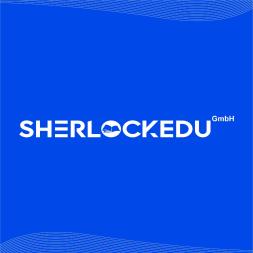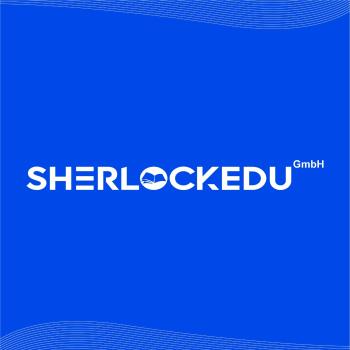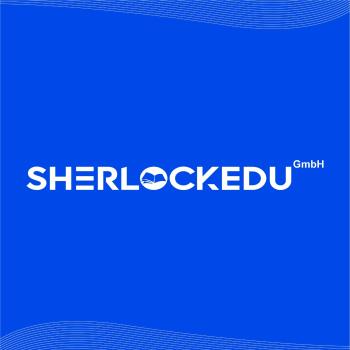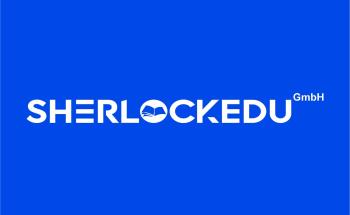
Third-party on-site course
HAPPY SCHOOL- A PSYCHOLOGICAL APPROACH for WELL BEING of STUDENTS-ANTALYA
Positive Education is a response to the gap between what people want for their children and what schools teach. That is, most parents want their children to be happy, healthy, and confident, but schools only focus on achievement, discipline, and academic skills. These are of course important, but so are positive mental health outcomes.
13.09.2024
Next upcoming session:
15.09.2025
- 19.09.2025
Multiple locations
Description
- DAY 1
- What is Positive Education?
- Why Focus On Positive Education?
- How To Get The Most Out Of Your Classroom Conversation
- DAY 2
- Happy Teacher = Happy Class
- Identifying personal sources of happiness
- Expressing gratitude
- DAY 3
- Free expression of different feelings in movement, art, speech, and facial expressions
- Describing happy memories
- Activities For Emotional Learning
- Positive Teaching: Moodtrackers And Other Worksheets
- DAY 4
- Mindfulness Activities For Kids
- Heartfulness: Generosity
- Positive Psychology Exercises For Teens
- DAY 5
- Active Constructive Responding
- Cooperative Learning Groups
- A Take Home Message
Learning objectives
- COURSE OUTCOMES
- The outcomes and objectives of the course are to understand:
- What positive psychology is and is not
- What strengths are and to understand one’s own strengths
- How to increase positive emotions
- Design programs based on Positive Education
- How willpower and the growth mindset can contribute to goal success
- Ways in which you can increase your own wellbeing and that of your work colleagues and learners and be able to apply Positive Education techniques at your school/college/university to:
- Increase focus and engagement on learning tasks
- Create greater productivity
- Secure an understanding of Positive Psychology fundamentals
- Build resilience in challenging situations
- Improve happiness and wellbeing
- Achieve goals more effectively
- Use mindfulness as an opportunity to train your mind, focus your attention on the present, relax, achieve goals, and reach a certain level of self-awareness;
- Gain positive knowledge and life skills
Methodology & assessment
Methodology
Pedagogical Approaches: Teacher training courses typically employ various pedagogical approaches to model effective teaching practices. This may include lectures, interactive seminars, workshops, and hands-on teaching experiences.
Practical Teaching Experience: Practical teaching experience is a fundamental component of teacher training. Participants often have opportunities to observe experienced educators and engage in actual teaching in classrooms or educational settings. Feedback and guidance from mentors are essential during these experiences.
Collaborative Learning: Collaborative learning is often encouraged in teacher training courses. Participants may work in groups to develop teaching materials, lesson plans, and teaching strategies. Collaborative projects can promote the exchange of ideas and best practices.
Reflective Practice: Reflective practice is a crucial aspect of teacher training. Participants are encouraged to reflect on their teaching experiences, analyze their teaching methods, and consider how to improve their practice. Journals, written reflections, and discussions are common tools for fostering reflective practice.
Assessment
Written Assignments: Teacher training courses often include written assignments, such as research papers, case studies, or essays, on topics related to education and teaching methods.
Examinations: Some teacher training courses may include written examinations to assess participants' understanding of pedagogical theories, educational psychology, and other relevant subjects.
Professionalism and Communication: Assessment may also consider participants' professionalism, communication skills, and ability to collaborate with colleagues, parents, and students.
Feedback and Self-Assessment: Regular feedback from mentors and self-assessment are crucial components of teacher training assessment. Participants are encouraged to use feedback to improve their teaching skills
Pedagogical Approaches: Teacher training courses typically employ various pedagogical approaches to model effective teaching practices. This may include lectures, interactive seminars, workshops, and hands-on teaching experiences.
Practical Teaching Experience: Practical teaching experience is a fundamental component of teacher training. Participants often have opportunities to observe experienced educators and engage in actual teaching in classrooms or educational settings. Feedback and guidance from mentors are essential during these experiences.
Collaborative Learning: Collaborative learning is often encouraged in teacher training courses. Participants may work in groups to develop teaching materials, lesson plans, and teaching strategies. Collaborative projects can promote the exchange of ideas and best practices.
Reflective Practice: Reflective practice is a crucial aspect of teacher training. Participants are encouraged to reflect on their teaching experiences, analyze their teaching methods, and consider how to improve their practice. Journals, written reflections, and discussions are common tools for fostering reflective practice.
Assessment
Written Assignments: Teacher training courses often include written assignments, such as research papers, case studies, or essays, on topics related to education and teaching methods.
Examinations: Some teacher training courses may include written examinations to assess participants' understanding of pedagogical theories, educational psychology, and other relevant subjects.
Professionalism and Communication: Assessment may also consider participants' professionalism, communication skills, and ability to collaborate with colleagues, parents, and students.
Feedback and Self-Assessment: Regular feedback from mentors and self-assessment are crucial components of teacher training assessment. Participants are encouraged to use feedback to improve their teaching skills
Certification details
- Completion Certificate: Upon successfully completing a teacher training course, you will typically receive a completion certificate or diploma from the training provider or institution. This certificate acknowledges your participation and successful completion of the training.
- Course Duration: The duration of teacher training courses can vary widely. Some may be short-term workshops or seminars, while others may be more comprehensive and span several weeks or months. The certificate may indicate the total number of hours or credits completed.
- Content and Curriculum: The certificate should outline the key topics, content, and skills covered during the training. This information helps future employers or educational institutions understand the scope of your training.
- Credits or Continuing Education Units (CEUs): In some cases, teacher training courses may offer academic credits or Continuing Education Units (CEUs). These credits can be valuable for professional development and may be recognized by educational authorities or institutions.
- Language of Instruction: If the teacher training course is conducted in a language other than your native language, the certificate may indicate your language proficiency level or the language in which the training was delivered.
- Evaluation and Assessment: Teacher training courses often involve assessments or evaluations of your performance. The certificate may include information about your performance in the training, such as grades or evaluations.
- Recognition and Accreditation: Ensure that the teacher training course and the institution providing it are recognized and accredited by relevant educational authorities or professional bodies. This can affect the credibility and transferability of your certificate.
- Pedagogical Practices: If the training includes practical teaching experience or classroom observations, the certificate may highlight your proficiency in specific pedagogical practices or teaching methodologies.
Pricing, packages and other information
-
Price:400Euro
Additional information
-
Language:English
-
Target audience ISCED:Primary education (ISCED 1)Lower secondary education (ISCED 2)Upper secondary education (ISCED 3)
-
Target audience type:TeacherCareers CouncillorHead Teacher / Principal
-
Learning time:25 hours or more
Upcoming sessions
Past sessions
More courses by this organiser

On-site
STAGECRAFT: ENHANCING SOFT SKILLS THROUGH DRAMA-BERLIN
Next upcoming session
-
Multiple locations
Organised by

On-site
INTERSECTIONAL EDUCATION- AN INCLUSIVE APPROACH TO DIVERSITY-HELSINKI
Next upcoming session
-
Multiple locations
Organised by

On-site
MINDFULNESS NURTURING INNER PEACE AND PRESENCE-BUDAPEST
Next upcoming session
-
Multiple locations
Organised by

